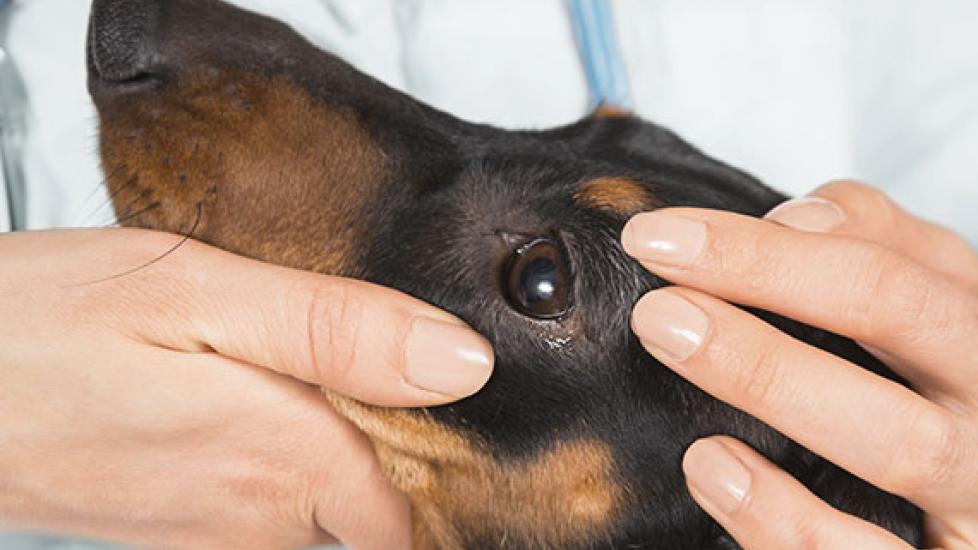Veterinary Gene Therapy for Eye Diseases May Benefit Both Animals and Humans
A lot has changed since I graduated from veterinary school almost 16 years ago. One topic that we barely touched upon was gene therapy. The field was in its infancy back then (particularly as it applied to veterinary medicine), so whenever I see a study that talks about the successful use of gene therapy in animal patients, I sit up and take notice. Just such a study recently appeared in the Proceedings of the National Academy of Sciences (PNAS).
First some background information…
Inherited diseases that lead to retinal degeneration and blindness affect both dogs and people. In veterinary medicine, we tend to lump them all together under the term progressive retinal atrophy (PRA) even though research has identified some of the specific genetic defects that are responsible. The various forms of PRA are typically diagnosed in Labrador retrievers, poodles, cocker spaniels, collies, Irish setters, dachshunds, miniature schnauzers, akitas, Australian shepherds, golden retrievers, samoyeds, beagles, German shepherd dogs, Siberian huskies, Yorkshire terriers, and Portuguese water dogs, but the condition can also affect other breeds, and even mutts.
As the name suggests, progressive retinal atrophy is a condition that causes the retinas to lose their ability to function over time. The retina (a layer of tissue that lines the inside of the back of the eye) contains photoreceptors, special cells responsible for converting light into electrical nerve signals that travel to the brain. There are two types of photoreceptors in the retina:
- Cones — primarily associated with color vision
- Rods — involved in black and white and low-light vision
When a dog has PRA, his photoreceptors deteriorate. Typically, the rods are the first to go, which is why dogs tend to first have problems with night vision. Eventually, both rods and cones are affected to a significant degree and blindness is the result.
Canine PRA can be used as an animal model for inherited retinal diseases in people. The scientists involved in the recent PNAS study used dogs who had PRA caused by the same genetic mutation that is associated with X-linked retinitis pigmentosa in people. Specifically, a faulty RPGR (Retinitis Pigmentosa GTPase Regulator) gene was to blame.
The researchers inserted functional RPGR genes into viruses, which were given to the dogs with PRA. The viruses “infected” the dogs’ retinal cells and inserted these functional genes. As a result, retinal cells were then able to produce proteins that have been missing from the dog’s rods and cones.
The results of a previous study by the same group of scientists showed that this type of gene therapy was quite effective when it was instituted very early in the course of PRA. This new research is even more promising since it revealed that gene therapy could protect and even improve the dogs’ vision when it was started in the later stages of the disease, after 50% or more of the rods and cones had already been lost. The benefits continued throughout the 2 ½ year time course of the study.
Gene therapy is not yet available outside of clinical studies like this, but if research continues, it may soon benefit both of our species.

Dr. Jennifer Coates
Reference
Successful arrest of photoreceptor and vision loss expands the therapeutic window of retinal gene therapy to later stages of disease. Beltran WA, Cideciyan AV, Iwabe S, Swider M, Kosyk MS, McDaid K, Martynyuk I, Ying GS, Shaffer J, Deng WT, Boye SL, Lewin AS, Hauswirth WW, Jacobson SG, Aguirre GD. Proc Natl Acad Sci U S A. 2015 Oct 27;112(43):E5844-53. doi: 10.1073/pnas.1509914112. Epub 2015 Oct 12.
